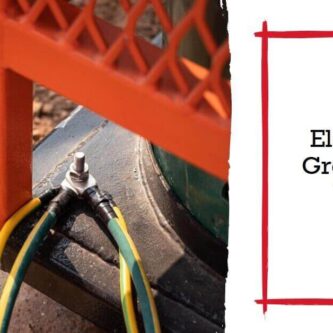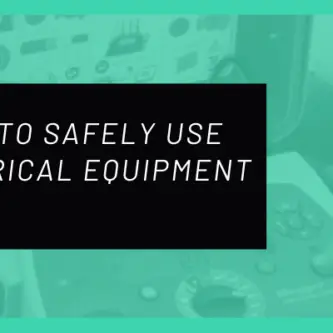Water is an essential resource for life, but it can also pose a serious threat to electrical equipment safety.
When water comes into contact with electrical equipment, it can cause damage or even electrocution.
In this article, we will explore the effects of water on electrical equipment safety and provide tips on how to prevent water-related accidents.
How Water Affects Electrical Equipment Safety
| Effect of Water on Electrical Equipment Safety | Explanation |
|---|---|
| Electrical shock | Water is an excellent conductor of electricity, and can create a path for the electrical current to flow. This can cause electrical shock or electrocution. |
| Short circuits | Water can cause electrical equipment to short circuit, which can generate heat and create a potential fire hazard. |
| Corrosion | Water can cause corrosion of metal components in electrical equipment, which can weaken the structure and lead to failure. |
| Damage to equipment | Water can damage electrical equipment, causing it to malfunction or fail, which can create a potential fire hazard. |
| Fire hazard | Water can cause a fire in certain situations, such as when it comes into contact with energized electrical equipment, flammable liquids, or other combustible materials. |
Water is an excellent conductor of electricity, which means that when it comes into contact with electrical equipment, it can create a path for electricity to flow.
This can cause short circuits, damage to equipment, and even electrocution. Water can also cause corrosion of metal components, which can weaken the structure of the equipment and make it more prone to failure.
Can water cause a fire in electrical equipment?
Yes, water can cause a fire when it comes into contact with electrical equipment under certain circumstances.
When water comes into contact with electrical equipment that is energized or live, it can create a path for the electrical current to flow.
This can lead to a short circuit or arcing, which can generate heat and ignite flammable materials nearby.
In addition, the water itself can cause damage to the equipment, which can create a potential fire hazard.
Read my comprehensive article can water in electrical panels start a fire?
Types of Water that Affect Electrical Equipment Safety
Not all water is created equal when it comes to its effects on electrical equipment safety. There are three types of water that can impact equipment safety:
- Clean water: This is water that does not contain any contaminants, such as rainwater or tap water. While clean water can still pose a threat to electrical equipment safety, it is less likely to cause damage than other types of water.
- Saltwater: Saltwater is highly conductive and can cause significant damage to electrical equipment. It is often found in coastal areas or areas prone to flooding.
- Dirty water: Dirty water contains contaminants such as chemicals, oil, or sewage. This type of water is the most dangerous when it comes to electrical equipment safety, as it can cause significant damage and create health hazards.
Tips for Preventing Water-Related Electrical Accidents
- Keep electrical equipment away from water sources: This may seem obvious, but it is essential to keep electrical equipment away from any water sources, including sinks, pools, and outdoor areas where water can accumulate.
- Use waterproof equipment: When working with electrical equipment in wet environments, it is crucial to use waterproof equipment that is designed to withstand exposure to water.
- Install ground fault circuit interrupters (GFCIs): GFCIs are designed to shut off electrical circuits when they detect a ground fault, which can occur when water comes into contact with electrical equipment.
- Regularly inspect electrical equipment: Regular inspections can help identify any potential issues before they become a problem. Look for signs of corrosion, frayed wires, or other damage that could be caused by exposure to water.
- Have a plan in place for water-related emergencies: In the event of a flood or other water-related emergency, it is essential to have a plan in place for shutting off electricity and evacuating the area.
Conclusion
Water can have a significant impact on electrical equipment safety, but with proper precautions and awareness, it is possible to prevent water-related accidents.
By keeping electrical equipment away from water sources, using waterproof equipment, installing GFCIs, regularly inspecting equipment, and having a plan in place for water-related emergencies, you can help ensure the safety of yourself and others.
you work With Electricity! Don’t leave empty-handed!
Looking to stay ahead of the game in the world of electrical engineering? Subscribe to my YouTube channel and gain access to exclusive content you won’t find anywhere else!
The staff I recommend (Amazon Affiliate Links to products I believe are high quality):
- Economy 120 Volt/60Hz AC Power Source – Step-Down Voltage & Frequency Converters 1800W
- UNI-T Digital Multimeter Tester UT139C
- 50-Amp Extension Cord for RV “100ft”
- Voltage Stabilizer 110/220v
- Hair Dryer “best selling“
- TOSHIBA EM131A5C-BS Countertop Microwave Ovens
Disclaimer: This contains affiliate links to Amazon products. I may earn a commission for purchases made through these links.



